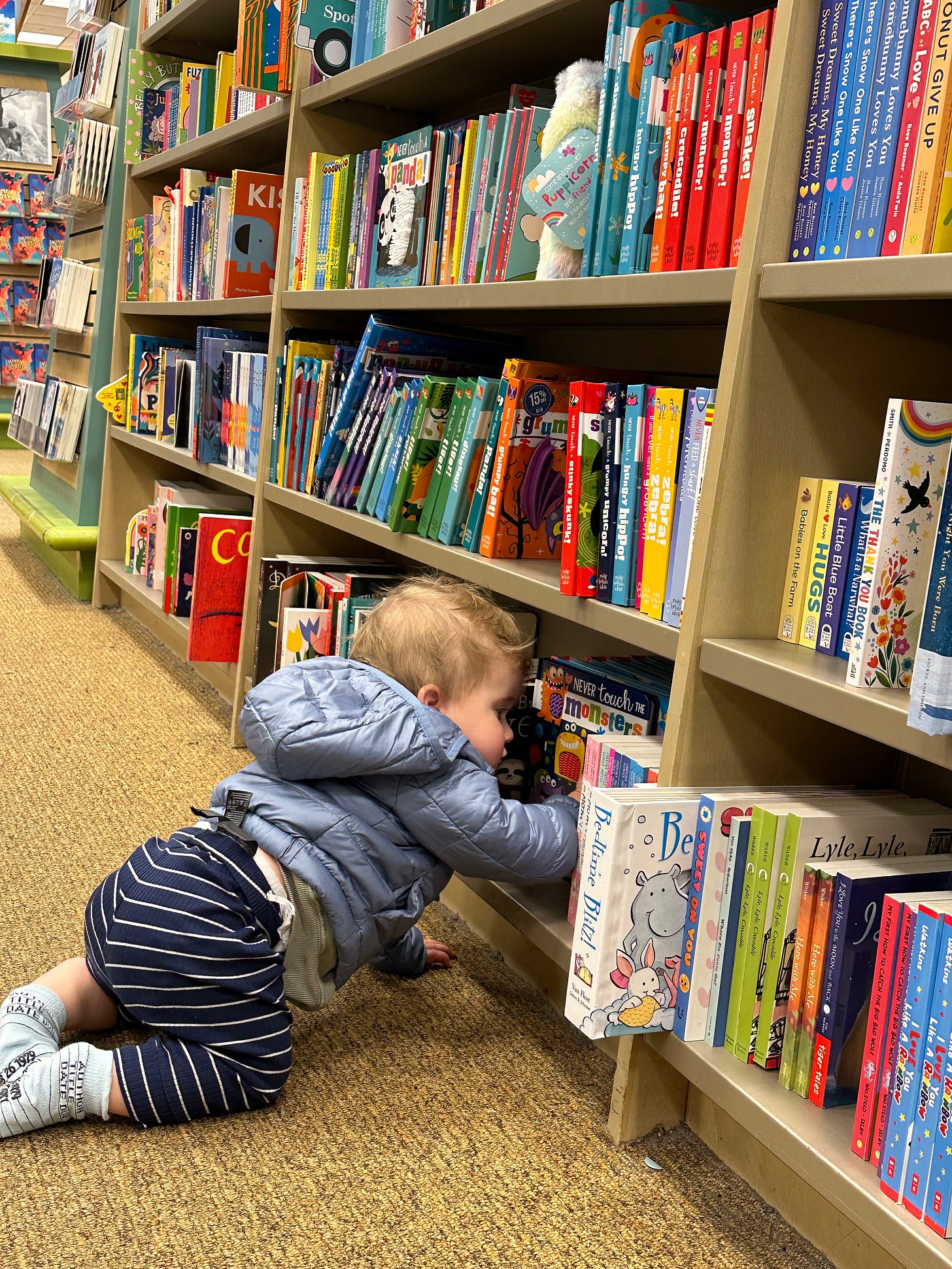I'm raising a white man in 2024 and it feels complicated sometimes
What's a feminist boy mom to do in a world of toxic masculinity?
Until Will was born, Matt and I didn’t know if we were expecting a baby boy or a baby girl.
We made the decision to wait for a couple of reasons. First of all, we liked the idea of a big surprise. Everyone we’d spoken to who chose not to find out the biological sex of their child while still in utero seemed to agree that the moment of truth was one of the most fun moments they’d ever experienced… and who doesn’t want that?
More than that, though, I had some anxiety about the way that having this information before the baby was born might impact my already tenuous mental health specific to pregnancy and impending parenthood. I didn’t want to have expectations about the new addition to our family if those expectations were based primarily on my own conditioning about gender. I’ve been questioning that conditioning and evolving my understanding over the last couple of years, but still—I wanted to be wise about the information I took in while I was pregnant.
As part of the evolution of our understanding of gender, Matt and I are more or less proceeding with the understanding that we are raising a boy—whose gender matches his biologically-assigned sex—until or unless we are told otherwise. In that spirit, we will sit back and allow Will to show us what he’s interested in trying, doing, playing with, learning, and enjoying, whether those things lean in directions that a more binary framework might suggest are male- or female-coded. At the moment, he loves soccer balls, books with cool textures to explore, banging items against a table, music, and trying to stand independently.
Choosing to wait to find out if we would be welcoming a baby boy or baby girl into our family, I think, helped us stay open-minded about what this experience would be like.
Now, in November of 2024, I’m hit with the full impact of the reality that I am, in fact, raising a white man. I’ve always known this, of course, but it feels a bit heaver in the wake of the results of the recent presidential election.
I recognize that showing up in the world as a white-presenting biological male isn’t a choice that anyone makes. I also recognize that there are many ways in which a white boy or man might struggle. Privilege is a complicated subject, and Will will certainly bump up against his fair share of obstacles on the way to adulthood. But I’m also not comfortable ignoring the fact that his race or gender are not going to be among those obstacles.
I’ve always been an outspoken feminist, an identity I’ve grown into more over the last decade or so as I’ve further sharpened what I believe about the world. I imagine that this fact might have made being a hashtag boy mom a bit confounding in any time or place, but at a moment when many women and queer folks are feeling defeated and when a particular sort of white aggressive masculinity is on the rise, it’s that much trickier.
It doesn’t mean that I’m not completely obsessed with my son. Or that I am not fully ready and excited to do whatever I can to love and support him in every single way I can.
It does mean that I’m more aware than ever of my responsibility to be intentional about raising my child to understand his privilege, understand the world around him, and do as much good as he can.
My general trepidation about all of this is rooted less in some vendetta against men and the patriarchy (though I wouldn’t mind if the patriarchy just went ahead and shoved it) and more in my belief in Will’s limitless potential, which I worry might be totally strangled in a world that’s so steeped in misogyny and, yes, the patriarchy.
Because here’s the thing: patriarchy hurts men, too. White men have wild amounts of privilege, but for many reasons (and you can read writing from people much smarter than me about this), people of every gender suffer because of these structures.
Currently Reading: The Most Famous Girl in the World by Iman Hariri-Kia
I really enjoyed Iman’s first book and had the best time recording a podcast episode with her last year, so when I saw that her sophomore novel was available for pre-order, I immediately added it to cart. It didn’t hurt that it has one of my favorite covers of 2024! As I write this, I’m only about one-third of the way through The Most Famous Girl in the World, and while it’s feeling a little chaotic, that’s kind of the point… and it has a fresh, pop-y sensibility that I’m always on board with.
Toss that in with the ~social milieu~ encouraged by our president-elect and—hell yeah, this whole thing feels complicated.
I’ve tried to break down a few of my concerns more specifically below.
There are things that we want to instill in our child (or children) regardless of their gender—and I know that it’s my work to figure out how to separate some of that from my own feelings about all of the things I’ve already written here. Matt and I want to teach Will to be curious, fair, empathetic, kind, funny, and compassionate. We want him to ask questions and to be observant about the people and places around him so that he can be meaningfully engaged in his relationships. Some of those traits have historically been viewed as “male,” while others have not. I repeat: I have to do the work to make sure that I’m encouraging all of those things from a place of openness rather than worry or defensiveness.
More or less from the moment he was born, I’ve aspired to raise Will to be a strong and gentle man… and I’m not sure that combinations is always the most welcome in our world. In my experience, our world—and the people in it—are not always the most open to two things being true. As a woman, I’ve often felt that in my pursuit of being both ambitious and compassionate. I want Will to grow up to be strong and gentle, and I would imagine that that’s a tough dichotomy to work with for me in a lot of cases.
Keep reading with a 7-day free trial
Subscribe to Getting It Alli Together to keep reading this post and get 7 days of free access to the full post archives.






